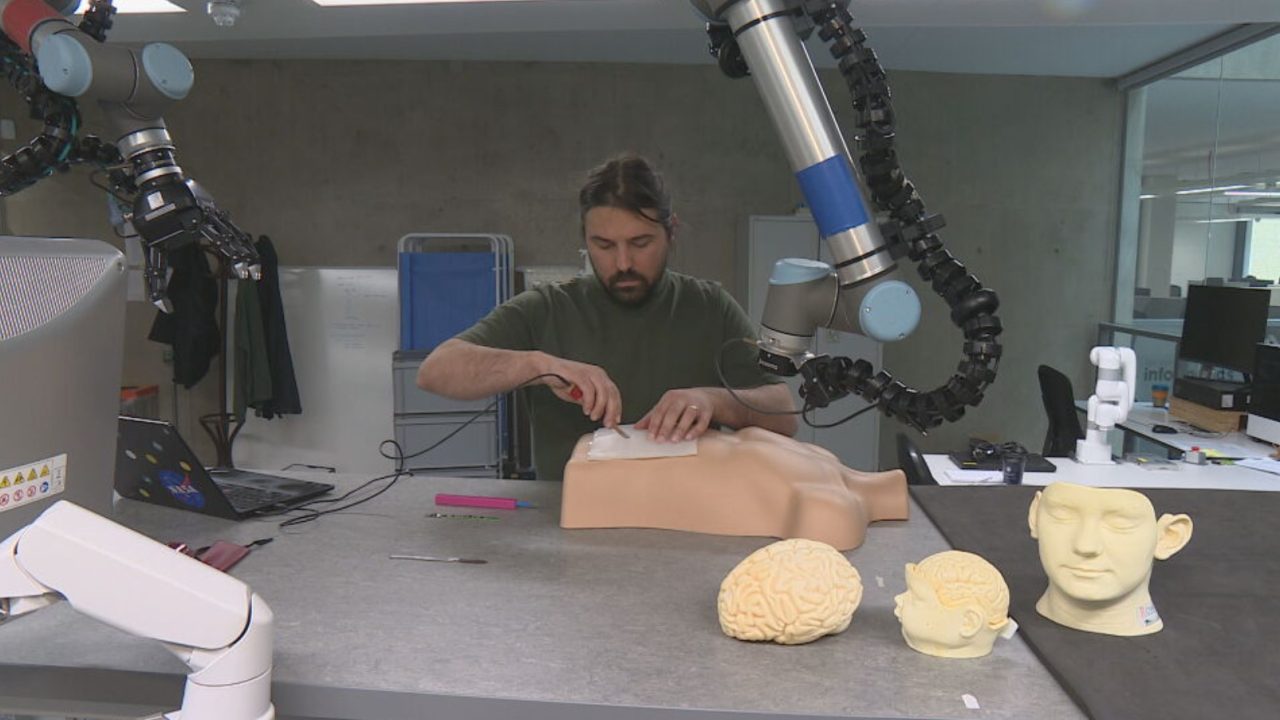Researchers at Edinburgh University have developed a smart scalpel which could help doctors hone surgical skills.
While most past studies assessing the skills of surgeons during procedures have focussed on movement used during surgeries, this one tracks the amount of force being used.
While the level of force applied is known to be important in surgery, there have been few tools until now capable of measuring it in real-life settings.
Edinburgh University PHD student Arturas Straizys said: “At the moment the way students are practising their skills means there is a supervisor who overlooks the procedure and gives feedback – and that is vision-based.
“However we are interested in the ways in which we can objectively evaluate the surgical skills.”
The scalpel that has been developed tracks the amount of force being used using built-in sensors rather than just the motion. The data collected can then be analysed.
Researchers who studied data captured by the scalpel during trials found its sensors could accurately track how much force users were applying during surgical procedures, and how they were controlling the device over time.
Sensor data analysis showed the technology could assess this key skill as effectively as traditional evaluation methods, which involve visual assessment by experienced practitioners.

Further development could see the technology – which is equipped with a newly developed force-sensing system – used to assess a wide range of surgical skills and aid the creation of robotic devices that can perform procedures safely and efficiently.
Researchers tested the new technology by tracking 12 medical students and two surgeons as they carried out a procedure known as an elliptical incision.
The procedure – which involves making two curved cuts to the skin – is used to remove moles and skin legions such as melanoma. Tests were performed on synthetic material made of gelatin and silicone that mimics the properties of human skin.
The scalpel with built-in sensors could streamline training for surgeons and pave the way for procedures performed by robotic devices.
Further trials are needed to test the effectiveness in real life scenarios – of those prove successful, researchers are hoping that by the end of the year, this scalpel could be being used by trainees across the UK.
Follow STV News on WhatsApp
Scan the QR code on your mobile device for all the latest news from around the country


























